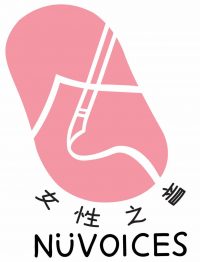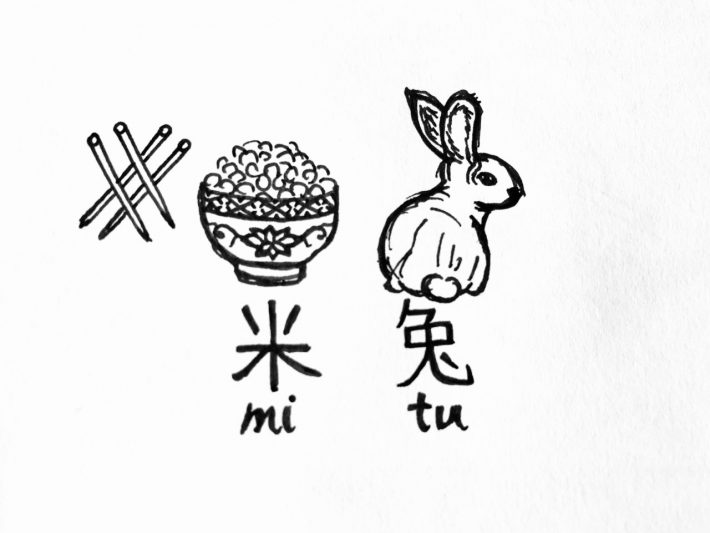BY MIA COUPLAND
Last November, makeup vlogger He Yuhong reignited the conversation on #MeToo in China when she shared her experiences with domestic violence in a Weibo video. He, who goes by “Yuyamika,” claimed that Chen, an illustrator and her former partner, abused her repeatedly during their relationship. Chen was detained for 20 days, and she was granted a restraining order against him. Following He’s confession, over 720,000 netizens were inspired to speak out, with many using the hashtag #NoLongerSilentFacedWithDV to share their own stories.
A year on, the COVID-19 pandemic has forced many to stay inside and sparked a surge in domestic violence. The response to this has been mixed. Earlier this year, the city of Yiwu introduced a database allowing residents to investigate whether their potential new partner has a history of convicted violence. Yet after China saw an unprecedented rise in divorce filings following the national lockdown period, a Civil Code was enacted in May requiring couples to take a 30 day “cooling off” period when filing for divorce.
As domestic violence continues to rage on as a silent epidemic in China, NüStories decided to revisit the history of anti-domestic violence efforts – and point to some of the challenges that lie ahead.
Confucian values, gender norms, and the patriarchy
Traditional Chinese values are based on Confucianism, which advocates for social harmony yet perpetuates a gendered hierarchy that attaches great importance to familial reputation. Like in many patriarchal societies, the remit of the home is considered the domain of the man of the family; therefore, domestic violence is generally considered a private matter. This dynamic, as well as societal stigma, makes it difficult for victims to speak out.
In 2001, an amendment to the marriage law marked the first form of legal defence for victims of domestic abuse. Prior to this, domestic violence was only implicitly illegal, but victims’ rights and support systems were unclear. The amendment to the 1980 Marriage Law made domestic violence an eligible grounds for divorce for the first time – however, it was not regularly enforced.
China’s feminist reckoning
A number of high profile incidents in recent years have drawn public attention to issues of domestic abuse. In 2011, American teacher Kim Lee was victorious in divorcing her husband, Chinese teacher Li Yang, on grounds of domestic violence. The court also issued a three month restraining order against Yang, in a landmark decision.
On International Women’s Day in 2015, five feminist activists dubbed “The Feminist Five” were arrested when they campaigned against domestic violence on public transport. The international fame of the case mobilised other grass-roots activists, and after mounting public pressure, they were released.
In 2010, Li Yan was sentenced to death after she killed her husband in self-defence. The ruling received substantial attention both internationally and domestically, with many Chinese lawyers and feminists petitioning for a reassessment of the sentence. The case finally resulted in Li Yan’s death sentence being overturned in 2019.
The Anti-Domestic Violence Law: A flawed policy
A national anti-domestic violence law came into effect in March 2016, aiming to safeguard victims of domestic abuse through protection orders and government intervention. The protection orders offered under the 2016 law include four types. The first prohibits the defendant from committing domestic violence, which is already illegal. Two forbid the perpetrator from contacting, stalking, or forcing the victim out of a shared home. The final overs all other measures, such as banning abusers from the victim’s home, work, or other frequently visited places.
While the law is a step forward, it remains flawed. The law is limited to those classified as official families, leaving victims who are unmarried, divorced, or in same-sex relationships unprotected. Many victims also do not know how to find the details of each protection measure and so fail to apply for appropriate protection, often receiving just the minimum level. Violations are often treated as civil infractions, punishable by fines as little as up to 1000 yuan (about 150 USD) or 15 day detentions. Since the police cannot detain someone for violating a protection order, victims can be left without protection until their case reaches the courts. Even then, there may be no consequences.
Searching for support
The exposure brought by high-profile cases has encouraged more people to file for protection orders. But many encounter difficulties and enforcement remains mixed. “The problem now is that the training of police, prosecutors, lawyers and judges has not kept up,” said Feng Yuan, co-founder of women’s rights non-profit Equality in Beijing.
Protections granted under the new law, such as restraining orders, are hard to carry out and rarely enforced. Victims are required to show evidence of emotional and verbal abuse. According to Equality, a women’s organisation in Beijing, between March 2016 and December 2018 authorities received 5,860 applications for restraining orders, but less than two-thirds were approved, the New York Times reports. Local cadres also may not have the relevant experience to support victims.
Many victims are encouraged to mediate and reunite, which places them back into dangerous situations. This was the case for 23 year old Ah Lian, who survived a man who beat, cut and raped her as well as cut her off from her family. She was told by local authorities to “just work it out,” SupChina News reports. While there are several hundred women’s shelters in China, according to government numbers there remains a lack of awareness about how to access them and what services they provide.
An uphill battle
Not all high profile cases have led to a step forward in societal attitudes. In 2018, actor and model Jiang Jinfu admitted to having beaten his then girlfriend, Haruka Nakaura, after she shared photos of her bruised face on Instagram. Many took his side, commending the actor for being “brave enough” to admit his mistakes and speculating over whether she “deserved” it, the New York Times reports.
In 2017, a user of Feminist Voices – a prominent Chinese feminist blog – asked Chinese women to respond to a question on how we can assist domestic abuse victims. Answers included broadening the legal definition of domestic violence, and better awareness on the part of governmental bodies and society. There is also room for more internal research on domestic violence that will support policy reform. In recent years, changes in China’s civil society landscape has made grassroots actions on domestic violence more complex. Support for civil society organisations has decreased in recent years, with many NGOs struggling to operate under new restrictions.
Looking ahead
Despite these obstacles, the situation is slowly improving. Now, there is growing awareness on the difficulties that victims face. In a recent case highlighting the challenges of obtaining legal separation, Liu Zengyan was granted a divorce in July after CCTV footage was circulated of her husband beating her before she escaped from a two-story window, the New York Times reports.
In addition to Yiwu, other provinces are also stepping up to plug legal loopholes. Guangdong province last year ruled that minors who witness domestic violence should also be considered victims from a legal perspective. Shaanxi province implemented similar regulations, vowing to deal with domestic violence cases more efficiently.
As the pandemic challenges what was once perceived as normal, hopefully attitudes towards domestic violence will continue to shift too. High profile domestic violence cases have impacted public opinion and fuelled the work of grassroots organisations. Societal attitudes on domestic violence are also shifting, and the conversation on #MeToo is becoming more mainstream, particularly in younger generations. People are becoming more aware of issues surrounding domestic violence – and willing to fight against it.
About the author
Mia Coupland became passionate about Chinese cultural history and women’s issues whilst studying her undergraduate degree in history at the University of Manchester. Coupland is currently studying an MSc in computer science at Newcastle University, and she hopes to merge the two fields of history and computer science together through using software development to aid humanitarian causes.
About the artist
Jessie Lau is a writer, editor and artist covering identity, human rights and politics—with a focus on China and other parts of Asia. Her work has been published by The Guardian, Foreign Policy, Channel 4 News, The Nation and The Economist, among others. She serves as Board Member and Online Editor-in-Chief at NüVoices, and was formerly a Hong Kong and China reporter with the South China Morning Post. Based in London and Hong Kong, she holds a MSc in international history from the London School of Economics, an LLM in international studies from Peking University, and a BA in English from the University of California, Berkeley. Website: www.laujessie.com. Twitter: @_laujessie
About the editor
Daisy Singh-Greaves is a British writer and copyeditor for NüStories who also helps coordinate the NüVoices London Chapter. Passionate about Chinese literature, sustainability and social equity, she has worked for non-profits and intergovernmental organisations in Beijing and Paris. She holds an undergraduate degree in Chinese and English from SOAS, and is currently undertaking an MSc in International Relations at the University of Edinburgh. Daisy has written for Panda Radio and other China-focused media outlets, working to elevate the voices of women and minorities through grass-roots journalism. Twitter: @daisygreaves

